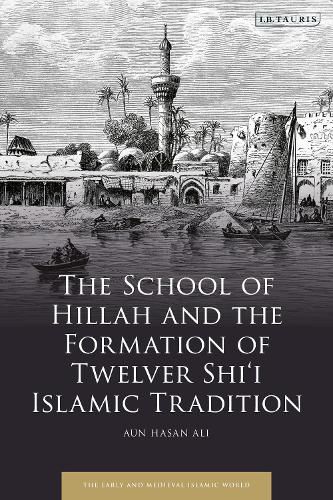Readings Newsletter
Become a Readings Member to make your shopping experience even easier.
Sign in or sign up for free!
You’re not far away from qualifying for FREE standard shipping within Australia
You’ve qualified for FREE standard shipping within Australia
The cart is loading…






Against the background of long-standing narratives in which Twelver Shi'ism is viewed as fundamentally authoritarian, The School of Hillah and the Formation of Twelver Shi'i Islamic Tradition builds upon recent scholarship in the fields of Religious Studies, Anthropology, and History to argue that Twelver Shi'ism is better understood as a discursive tradition. At a conceptual level, this solves the basic problem of how to integrate the extraordinary diversity of Twelver Shi'ism across time and space into a single historical category without engaging in a normative assessment of its underlying essence. Furthermore, in light of this conception of tradition, the School of Hillah stands out as a seminal period in the archive of Twelver Shi'ism, though it has seldom been recognized as such in European-language scholarship. Insofar as it gave birth to a conversation that would prove capable of encompassing the dynamism of Twelver Shi'ism, the School of Hillah should be considered the formative period of Twelver Shi'i tradition. Moreover, when the tradition is conceptualized in this manner, it is a bulwark against the very authoritarianism by which Twelver Shi'ism has been characterized for so long.
$9.00 standard shipping within Australia
FREE standard shipping within Australia for orders over $100.00
Express & International shipping calculated at checkout
Against the background of long-standing narratives in which Twelver Shi'ism is viewed as fundamentally authoritarian, The School of Hillah and the Formation of Twelver Shi'i Islamic Tradition builds upon recent scholarship in the fields of Religious Studies, Anthropology, and History to argue that Twelver Shi'ism is better understood as a discursive tradition. At a conceptual level, this solves the basic problem of how to integrate the extraordinary diversity of Twelver Shi'ism across time and space into a single historical category without engaging in a normative assessment of its underlying essence. Furthermore, in light of this conception of tradition, the School of Hillah stands out as a seminal period in the archive of Twelver Shi'ism, though it has seldom been recognized as such in European-language scholarship. Insofar as it gave birth to a conversation that would prove capable of encompassing the dynamism of Twelver Shi'ism, the School of Hillah should be considered the formative period of Twelver Shi'i tradition. Moreover, when the tradition is conceptualized in this manner, it is a bulwark against the very authoritarianism by which Twelver Shi'ism has been characterized for so long.